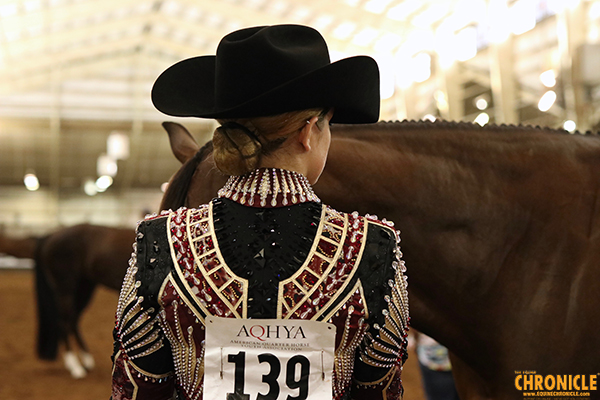Learn to Walk Before You Run
EC blog by: Kory Kumar
There is an assumption that only wealthy people engage in equestrian sports. Well, according to 2018 reported statistics, the joys of owning, showing, and riding horses are shared among all levels of the American people’s income bracket. The key to enjoying and engaging in equestrian-related activities is to find your financial place of comfort.
The United States is made up of 326 million people. According to the 2018 Census Report, and other statistics of the total US population, 6.7%, or 20,842,000 people, have reported that they engage in equestrian activities. This total amount of equestrians is further broken down into individual income brackets.
- Americans classified as “upper class” have an annual income of $140,000 or higher. This category is comprised of 3.1% of American equestrians, or 10,106,000 total individuals.
- Americans classified as “middle class” have an annual income range of $50,000 to $139,000. This category is comprised of 2.3% of American equestrians, or 7,498,000 total individuals.
- American’s classified as “lower class” have an annual income of $49,000 or less. This category is comprised of 1.3% of American equestrians, or 4,238,000 total individuals.
The idiom, “You must learn to walk before you run,” is related to an infinite number of metaphoric possibilities. It also perfectly illustrates the need and importance for competitive equestrians to do their homework before diving straight into the deep end of the competitive horse show pool.
I’ve been riding for the better part of the last 35 years of my life. I’ve engaged in competition of some level or another for the past 30 years. Just like within all competitive sports, equestrians are afforded many different competition levels under the horse show umbrella.
No matter which level of competition you may enter, there is a need to try things out first and observe your surroundings before making major changes, which impact your personal finances. You must first learn to walk, and to walk purposefully and successfully, before you begin to run. This is just like the more complex skills of riding and showing cannot be learned prior to the basic skills of horse care and horsemanship.
 There is a large body of research that supports stepping outside of your personal comfort zone and not being limited by fear. In the case of competitive equestrian sports, I feel that establishing a comfort zone is actually positive, as long as you don’t allow yourself to be defined by the limits of your comfort zone because of personal fear of failure. Establishing a comfort zone, in relation to finances and competition level, is important to consider as a long term competitive equestrian, because it will allow you to maximize your participation in the sport and help you set realistic goals and expectations for your performance.
There is a large body of research that supports stepping outside of your personal comfort zone and not being limited by fear. In the case of competitive equestrian sports, I feel that establishing a comfort zone is actually positive, as long as you don’t allow yourself to be defined by the limits of your comfort zone because of personal fear of failure. Establishing a comfort zone, in relation to finances and competition level, is important to consider as a long term competitive equestrian, because it will allow you to maximize your participation in the sport and help you set realistic goals and expectations for your performance.
All too frequently, I’ve seen people jump into the deep end of the pool with expensive horses, tack, and horse show bills, without having given themselves the luxury of learning and growing as a competitive equestrian within the industry. This can lead to burn out, heartbreak, bitterness, and disillusionment within the establishment of our industry. It is a fact that just because you own the most expensive horse in the arena, you’re not guaranteed to win a coveted first place prize. Your quality of horse, brand of tack, amount of glitter, or name of trainer, aren’t the only factors that contribute to your overall rate of success.
Don’t be afraid to take the horse you have, using the saddle and show clothes you already own, and climb the next rung of the competition ladder to try it out and see if you like it. Don’t be afraid to learn to walk before you run.
It’s quite normal and natural to observe your surroundings and want to improve upon your current reality. It can seem daunting and scary, as a new person looking in. It’s easy to get caught up in negative thinking or self-doubt that you aren’t good enough, your horse isn’t good enough, that your tack isn’t good enough, or that you don’t belong.
Before you go down the rabbit hole of financing your horse show passion, ask yourself these questions. There isn’t a right or wrong answer, but they do provoke self-inquiry and discovery, which can help you decide if now is the right time to transition from walking to running.
1. Are you engaged in a competition level that is within your personal financial comfort zone?
2. Is purchasing a new horse, tack, show outfit, etc. important to your personal growth? Is the purchase required for you to access the competition level you identified in question 1?
3. Have you tried out a higher level of competition with your current horse and accessories, prior to determining that you must upgrade them?
Retail therapy is a real thing, and it’s something that becomes extremely easy to fall into for most competitive equestrians. According to an article published in 2010 by Psychologies, humans don’t desire what we already have. The desire we feel is predicated on a sense of lacking that which we desire.
My fellow competitive equestrians, I’m guilty of this. I’ve had self-doubt. I’ve spent money impulsively and unnecessarily. I’ve looked at those around me and coveted horses, tack and clothing. Please learn from my mistakes. Please don’t be afraid to try things out and walk a little before you begin to run. This competitive industry that we all love so much is so much bigger than we realize. The time you spend within it will have seasons, and the season you’re currently in may not be the season your journey ends in. Please allow yourself the opportunity to learn, observe, and grow.
Respectfully,
Kory Kumar
If you’d like to write a blog post about a topic in the horse industry for EquineChronicle.com, email B.Bevis@EquineChronicle.com for consideration.











